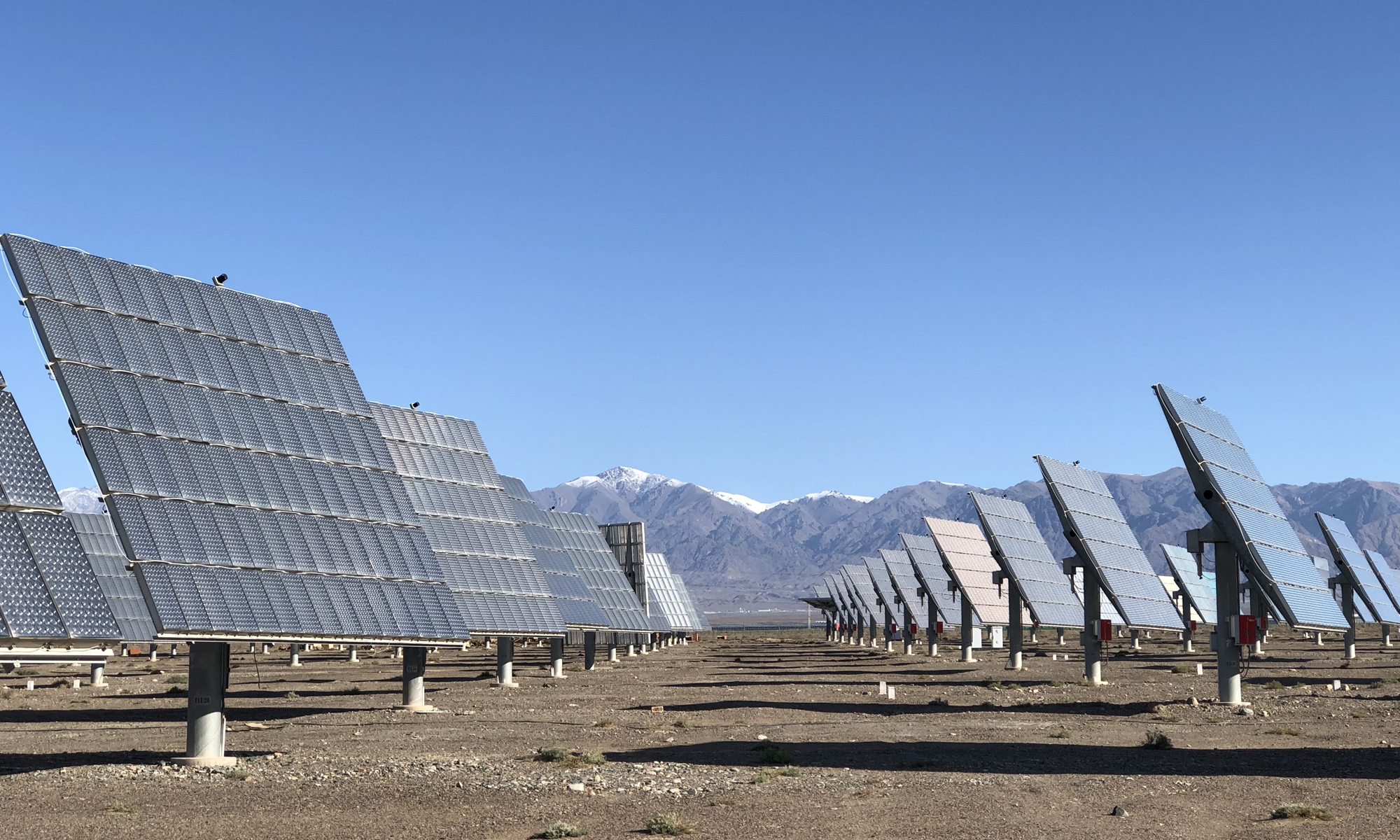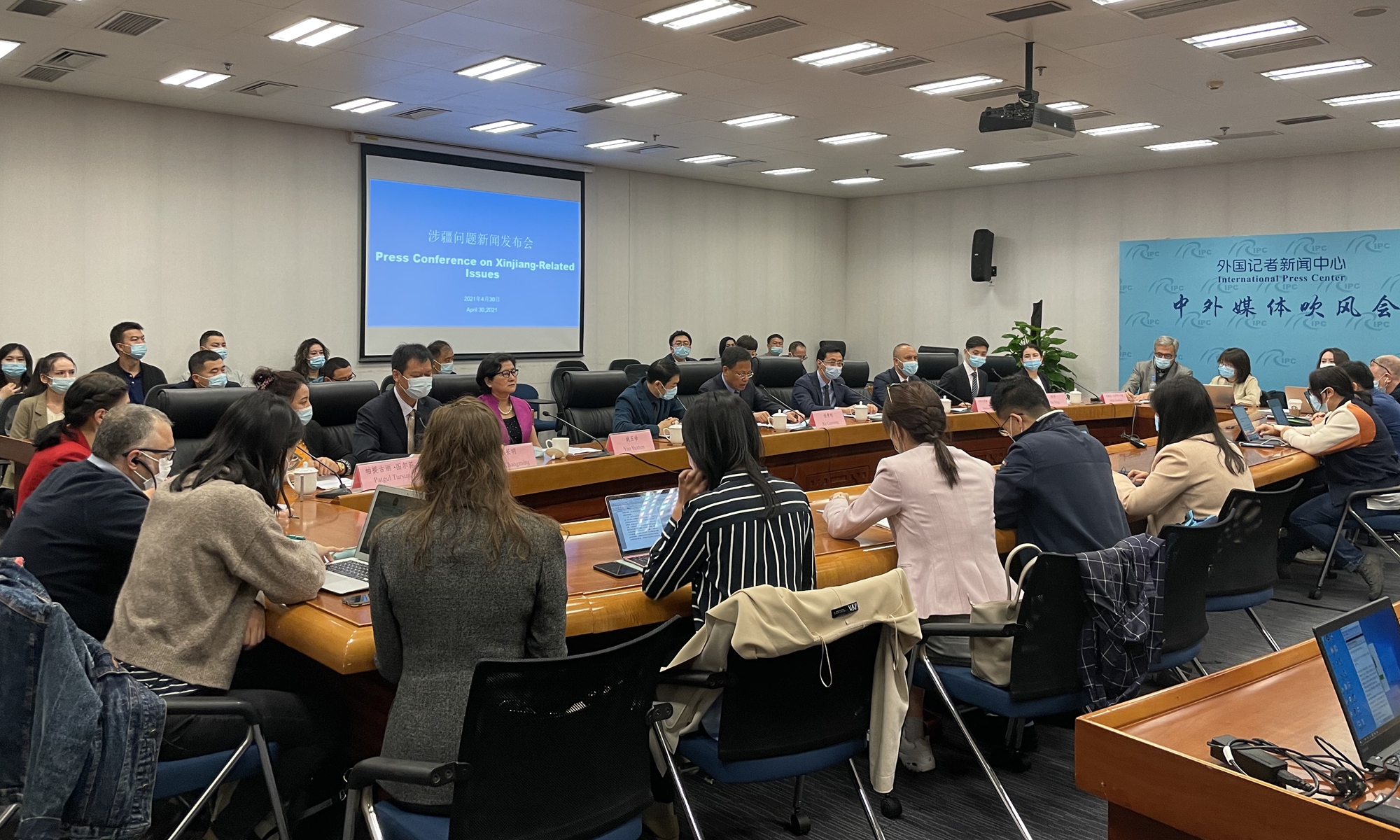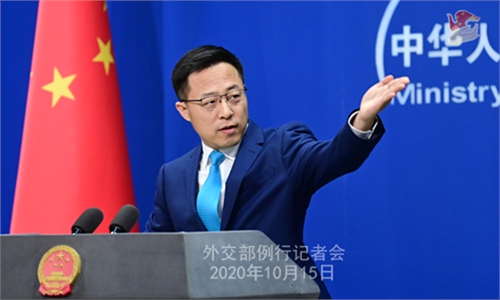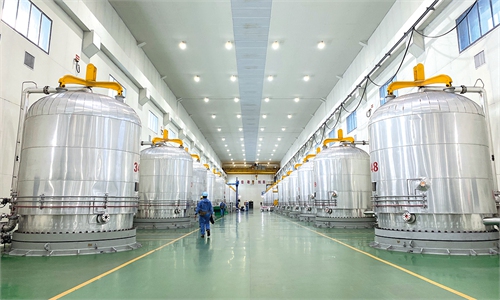Xinjiang refutes 'forced labor' smears in PV factories as US targets another pillar industry

Solar panels made by a company in Xinjiang's Hami. Photo: Liu Xin/GT
The Xinjiang regional government and local photovoltaic company representatives on Friday refuted Western media's "forced labor" claims in PV factories as the US now targets another pillar industry with "human rights" smears.
The photovoltaic industry in China's Uygur Autonomous Region serves the global market and those who want to block and eliminate the industry in the region on untenable "forced labor" accusations should ask whether the global industrial chain would agree, a representative from a Xinjiang-based photovoltaic company told a press conference on Friday.
"There is no such thing as so-called forced labor or 'monitoring' ethnic workers or 'oppressing' their religions or rituals in our company," said He Ning, secretary of the board and director of the investors relations of Xinjiang Daqo New Energy Co., Ltd.
He was one of the representatives from cotton-related and photovoltaic companies from Xinjiang invited to attend the Friday press conference and introduce the employment situation in Xinjiang.
Daqo is a company that is located in Shihezi in northern Xinjiang. The company produces polycrystalline silicon.
At the start of 2021, some Western media accused Xinjiang's photovoltaic companies of using "forced labor." This is the latest narrative to attack yet another of Xinjiang's pillar industries since the last round of hyping up "forced labor" concerns on cotton-related companies in the region.
"We feel angry and firmly oppose the accusations of 'forced labor' in the photovoltaic industry in Xinjiang," He said, introducing that the company's employees are recruited from Chongqing, Gansu and Xinjiang and they all have knowledge and skills on chemical-related fields."
All employees' rights have been fully protected and the average monthly salary is about 6,000 yuan ($927.6). All the company's products are sold within China, according to He.
Developing renewable energy represented by the photovoltaic industry and promoting energy transition have become a consensus around the world. China's photovoltaic industry also serves the global market, He said.
"We are not afraid of any unfair treatment. If anyone wants to eliminate Xinjiang's photovoltaic industry, they should ask whether China's photovoltaic industry or the global industry would agree," said He.

Representatives from Xinjiang’s cotton related and PV companies attend a press conference in Beijing on Friday. Photo: Liu Xin/GT
The representative also invited global industrial insiders, including those from the US to visit Xinjiang and see their automatic, digital and high-tech factories.
After imposing sanctions on cotton and tomato production companies from Xinjiang, the US is simmering bans on the region's solar panels and PV related companies. The top US solar industry trade group reportedly on Thursday issued a set of voluntary guidelines to solar panel manufacturers that it said could help rid products installed in the US of components built overseas with "forced labor."
"Practices have proved that the US moves of casting hurdles to block trade and to decouple with China go against market rules and are not in accordance with the interests of Chinese and Americans," Duan Wanjun, deputy director of Research Office of the Xinjiang regional government, told the press conference.
Duan said that the US and the West have used the excuse of "forced labor" to impose sanctions on Xinjiang's companies that deal with tomato producing, textiles, finance and high-technology. Some companies have gotten less overseas orders and some cannot finish cross-border settlements with the US dollar.
Duan noted that Xinjiang has taken a series of measures to help companies and to safeguard the industrial security. For example, it has guided companies to adopt cross-border electronic commerce and to expand overseas markets; promote self-developed technologies and use of China-made equipment and to improve the investment and financing environment.
Xu Guixiang, spokesperson of the Information Office of the Xinjiang regional government, said at the press conference that the US and Western countries' sanctions may affect some companies in the Xinjiang region temporarily. However, in the long run, the current difficulties may encourage companies to invest more in improving technologies and quality and to better expand into other overseas markets.
More importantly, with these groundless accusations, the US and other Western countries have fully exposed their hegemony using the disguise of human rights. Companies in Xinjiang are encouraged to work together to overcome the current difficulties, Xu said.
Representatives from Xinjiang Aksu Color Spining Co., Ltd and Yili Garment Manufacturing Co., Ltd also appeared at the Friday press conference and refuted accusations of "forced labor" by telling their own stories.




